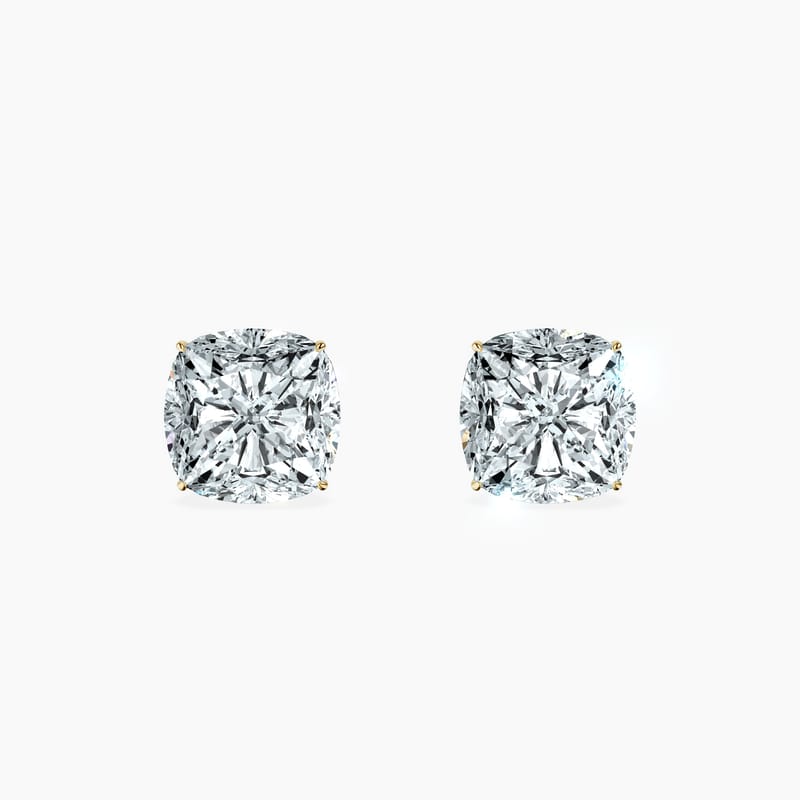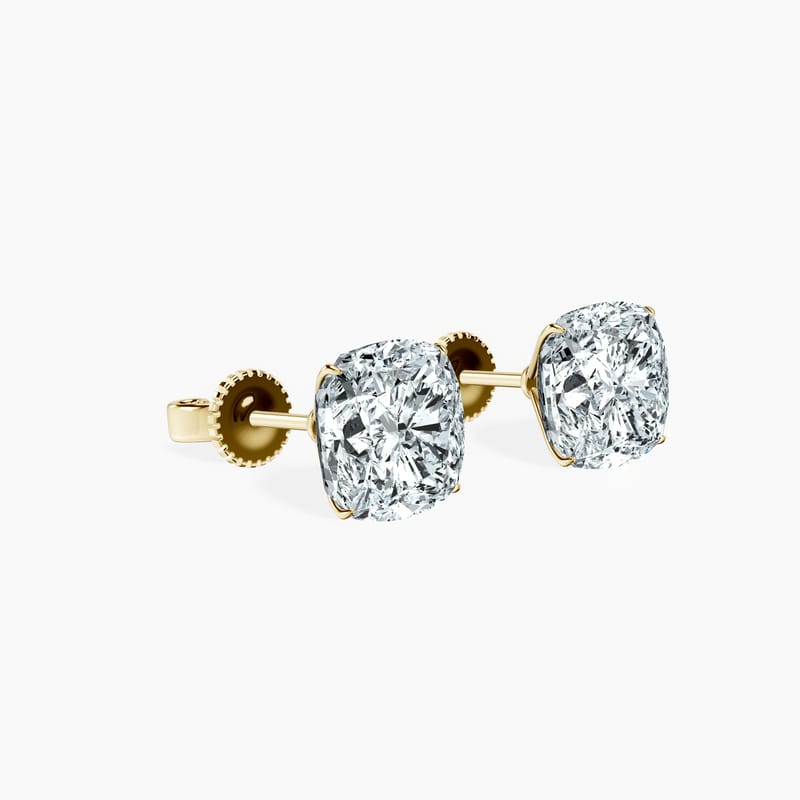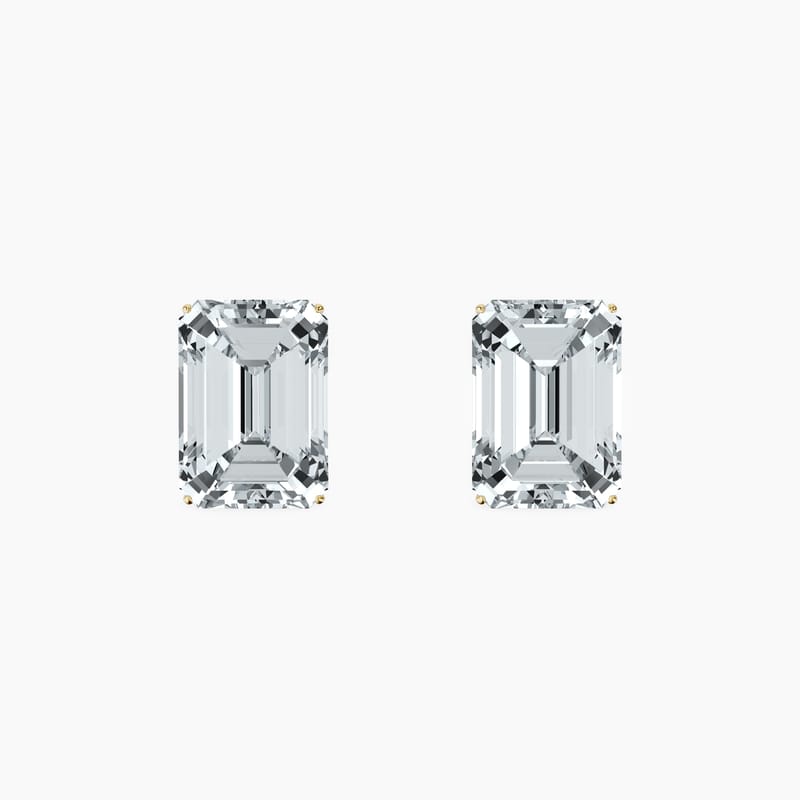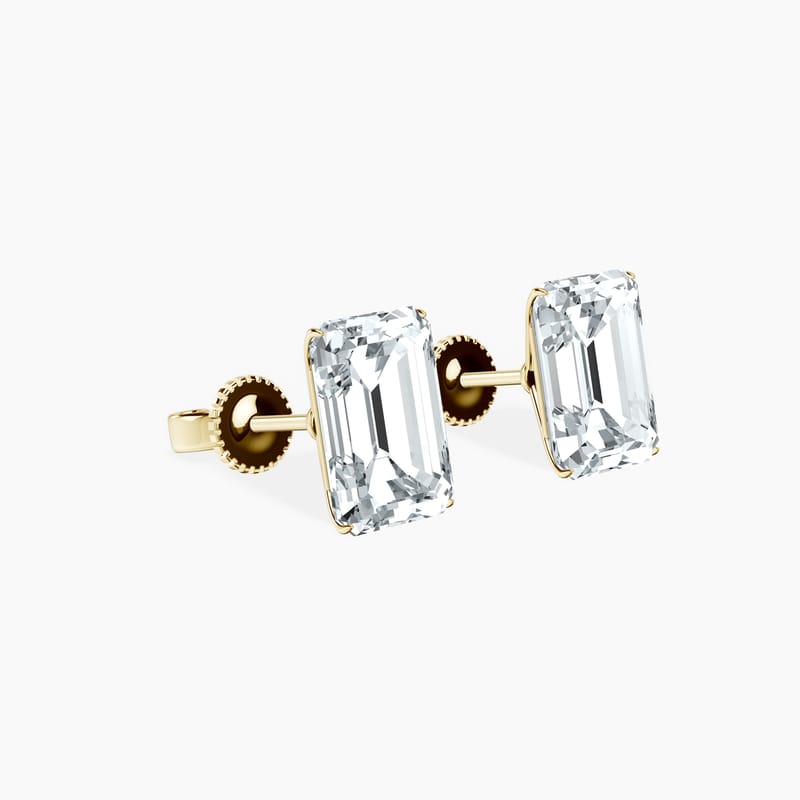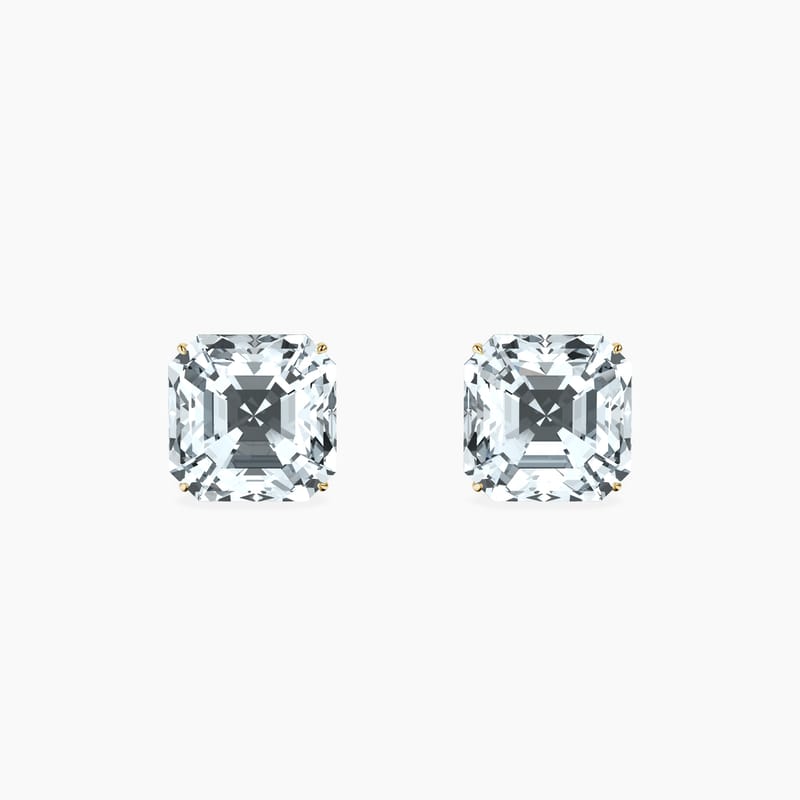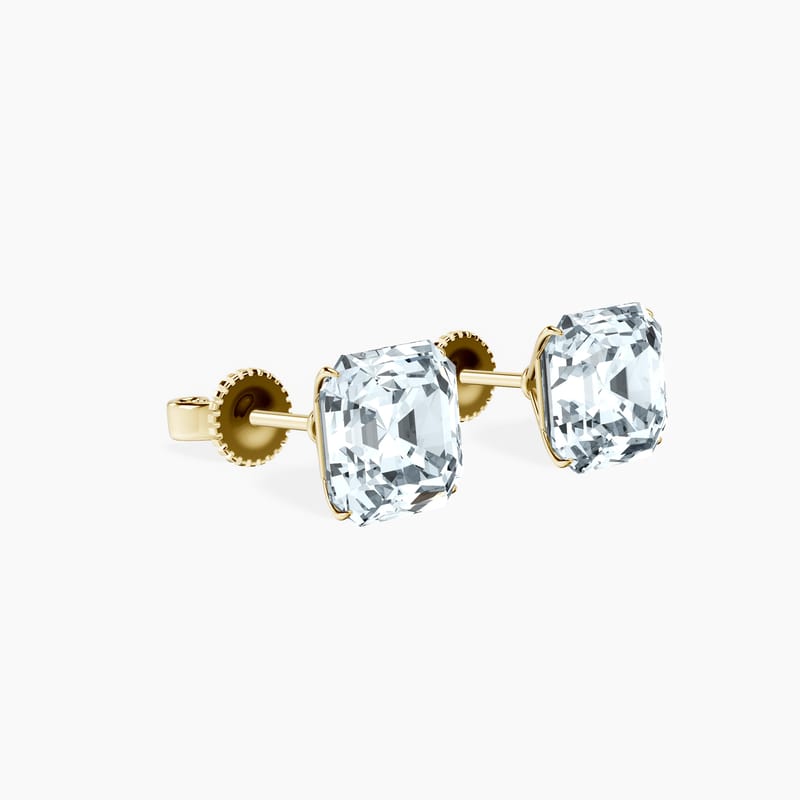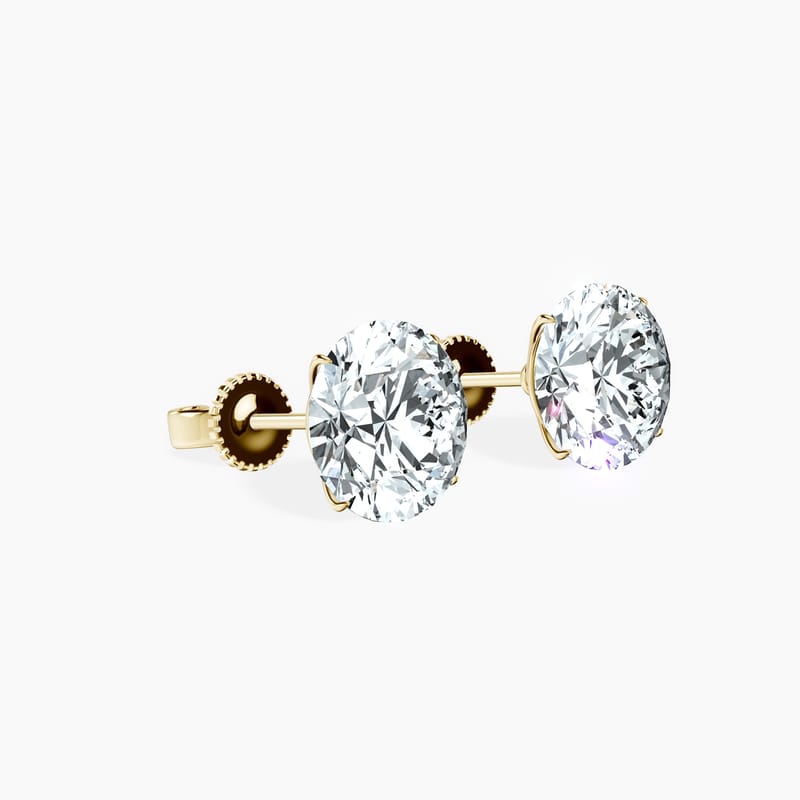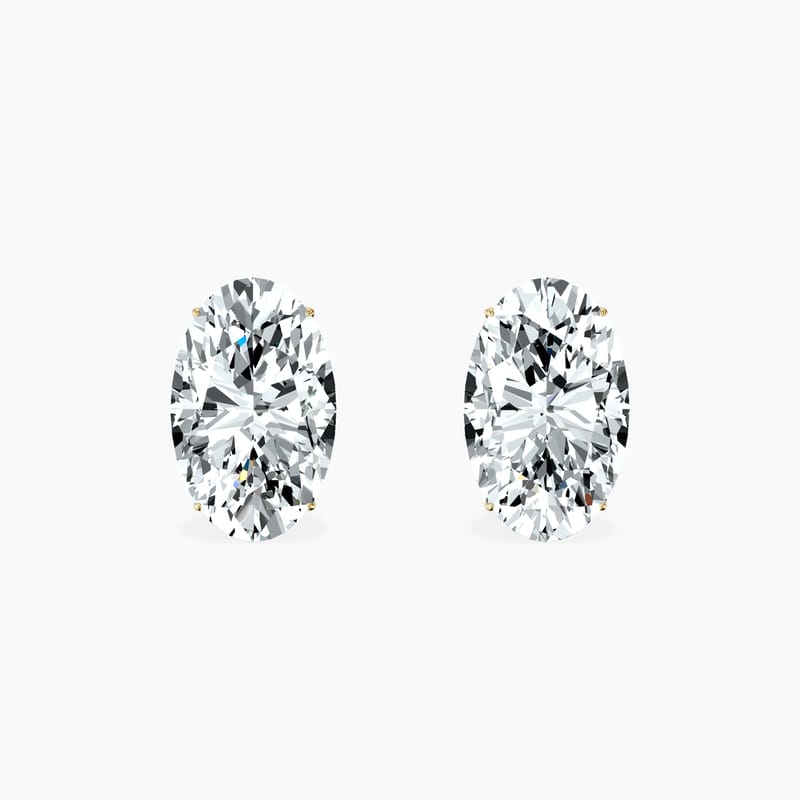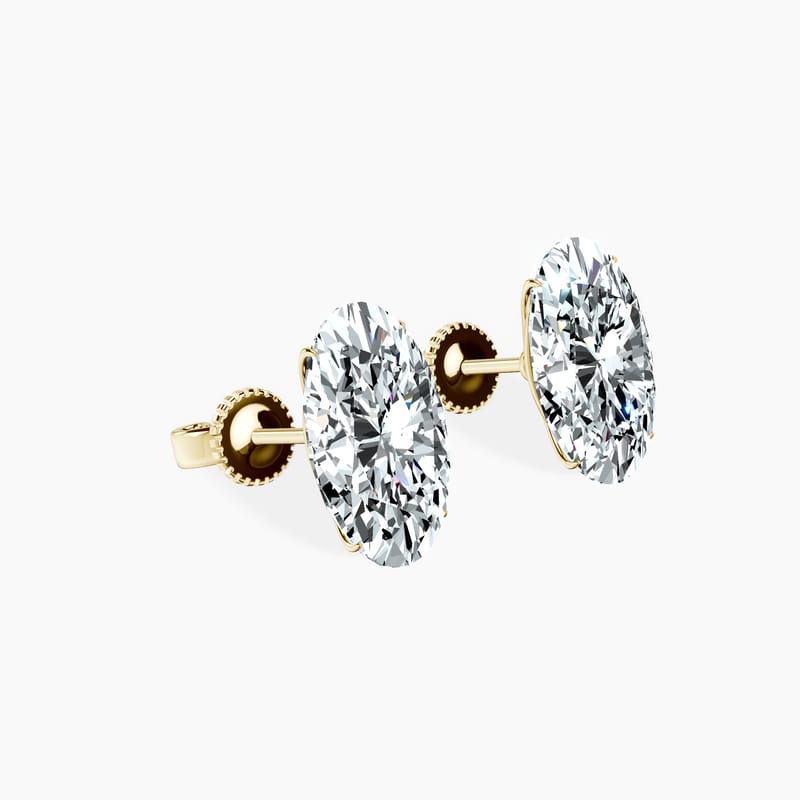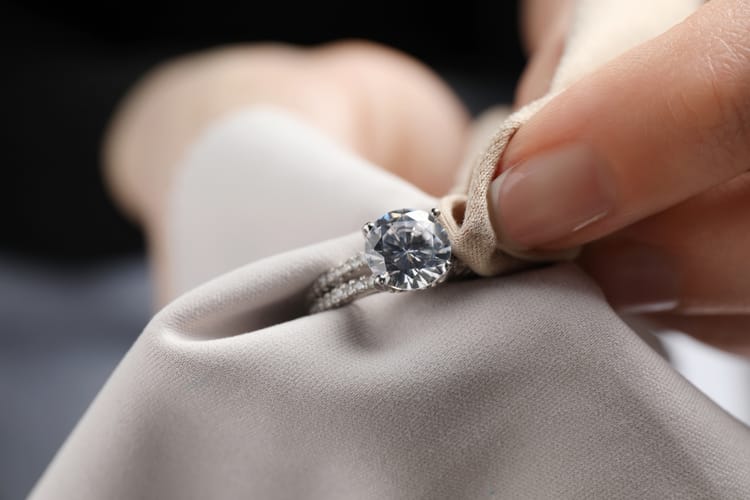Understanding Jewelry Metals
Silver Jewelry
Silver is a classic choice for jewelry, known for its lustrous shine and affordability. It’s often used in various types of jewelry, from everyday pieces to high-end designs.
Pros:
- Affordability: Silver is generally more budget-friendly than gold or platinum, making it an excellent choice for those looking for stylish jewelry on a budget.
- Versatility: It’s bright, white sheen pairs well with almost any gemstone and complements a wide range of skin tones.
- Workability: Silver is relatively soft and malleable, which makes it ideal for intricate designs and detailed craftsmanship.
Cons:
- Tarnishing: Silver is prone to tarnishing over time, especially when exposed to air and moisture. Regular cleaning is required to maintain its shine.
- Durability: Silver is softer compared to gold and platinum, which makes it more susceptible to scratching and bending. It may not be the best choice for everyday wear.
Tip: To extend the life of silver jewelry, store it in anti-tarnish pouches or cloths and clean it regularly with a silver polish.
Gold Jewelry
Gold is a traditional and timeless choice for jewelry, available in several shades including yellow, white, and rose. Its versatility and classic appeal make it a popular option for various types of jewelry.
Pros:
- Variety: Gold comes in various colors and karatages, allowing you to choose the hue and purity that best fits your style and budget.
- Durability: Gold is more durable than silver but not as resistant to scratching as platinum. Higher karat gold (such as 18K) is softer but offers a richer color.
- Tradition: Gold has been used for centuries in jewelry-making, symbolizing wealth and prestige.
Cons:
- Allergies: Some gold jewelry is alloyed with other metals like nickel, which can cause allergic reactions in sensitive individuals. Opt for hypoallergenic gold if this is a concern.
- Maintenance: Gold can tarnish or scratch over time, especially if it’s not properly cared for.
Tip: To keep gold jewelry in top condition, clean it regularly with a mild soap solution and a soft brush. Avoid exposure to harsh chemicals and store it in a soft pouch or lined jewelry box.
Platinum Jewelry
Platinum is a rare and luxurious metal known for its durability and natural white color. It’s often used in high-end and fine jewelry, including engagement rings and wedding bands.
Pros:
- Durability: Platinum is one of the most durable metals available. It is highly resistant to scratching, tarnishing, and corrosion, making it ideal for everyday wear.
- Hypoallergenic: Platinum is less likely to cause allergic reactions, which makes it a great choice for those with sensitive skin.
- Natural White Color: Platinum’s natural white hue doesn’t require plating, maintaining its color and sheen without additional treatments.
Cons:
- Cost: Platinum is more expensive than gold and silver due to its rarity and density. The high price may be a consideration for budget-conscious buyers.
- Weight: Platinum is denser than gold and silver, which can make jewelry pieces feel heavier. This may or may not be a preference depending on personal taste.
Tip: Platinum jewelry can develop a natural patina over time, which many people find desirable. To maintain its original finish, consider professional polishing services.
Choosing the Right Metal for Your Jewelry
- Consider Your Budget
When choosing between silver, gold, and platinum, your budget is a significant factor. Silver is the most affordable option, while platinum is the most expensive. Gold falls in between, with the cost varying depending on the karat and alloy.
- Silver Jewelry: Ideal for budget-conscious buyers who want stylish and versatile pieces.
- Gold Jewelry: Offers a balance between cost and luxury, with various options to suit different preferences.
- Platinum Jewelry: Best for those looking for durability and luxury, willing to invest in a high-end option.
- Think About Durability
If you’re looking for jewelry that can withstand everyday wear, platinum is your best choice due to its exceptional durability. Gold is also a durable option, especially at higher karatages, while silver may require more frequent maintenance and care.
- Everyday Wear: Platinum or high-karat gold is suitable for daily wear.
- Occasional Wear: Silver or lower-karat gold can be ideal for pieces worn less frequently.
- Assess Personal Style and Preference
Your personal style and preference will greatly influence your choice of metal. Consider how each metal complements your skin tone, existing jewelry, and overall style:
- Silver Jewelry: Perfect for those who enjoy a cool, modern look and want versatile, affordable options.
- Gold Jewelry: Suits those who appreciate classic elegance and want to choose from a range of colors and karatages.
- Platinum Jewelry: Ideal for individuals who prefer a timeless, luxurious appearance and don’t mind the higher investment.
- Consider Allergies and Sensitivities
If you have sensitive skin or are prone to metal allergies, it’s crucial to choose a metal that minimizes irritation:
- Silver Jewelry: Regular cleaning and proper storage can help mitigate tarnishing and potential irritation.
- Gold Jewelry: Opt for hypoallergenic gold alloys or high-purity gold to reduce allergy risks.
- Platinum Jewelry: Hypoallergenic and a great choice for sensitive skin.
Tips for Extending the Life of Your Metal Jewelry
- Regular Cleaning
Routine cleaning helps maintain the shine and appearance of your jewelry. Use appropriate cleaning methods based on the metal type:
- Silver Jewelry: Clean with a silver polish or anti-tarnish cloth regularly.
- Gold Jewelry: Clean with mild soap and water, and avoid abrasive cleaners.
- Platinum Jewelry: Use a gentle jewelry cleaner or take it to a professional for periodic polishing.
- Proper Storage
Store your jewelry in a clean, dry place to prevent tarnishing and scratching:
- Silver Jewelry: Keep in anti-tarnish pouches or lined jewelry boxes.
- Gold Jewelry: Use a lined jewelry box or separate compartments to prevent contact with other pieces.
- Platinum Jewelry: Store in a soft pouch or jewelry box to avoid scratches.
- Avoid Harsh Chemicals
Keep your jewelry away from harsh chemicals and substances that can damage the metal:
- Silver Jewelry: Avoid exposure to chlorine, bleach, and other cleaning agents.
- Gold Jewelry: Avoid contact with chemicals, lotions, and perfumes.
- Platinum Jewelry: Be cautious with household cleaners and perfumes.
- Professional Maintenance
For valuable or frequently worn pieces, consider periodic professional maintenance:
- Silver Jewelry: Have it inspected and polished by a jeweler.
- Gold Jewelry: Regular check-ups and polishing can keep it looking its best.
Platinum Jewelry: Professional cleaning can help maintain its finish.



